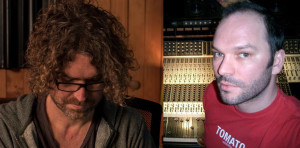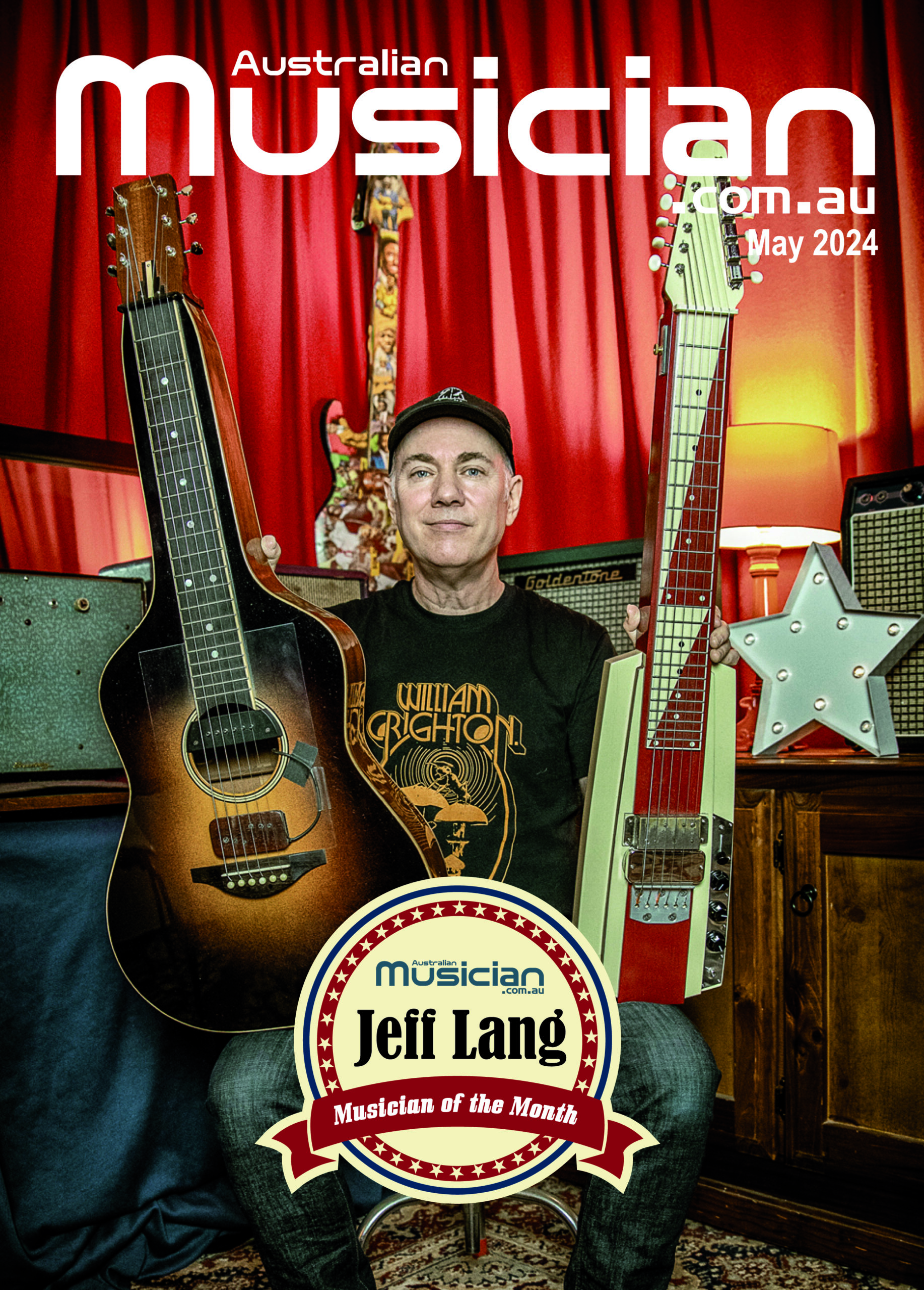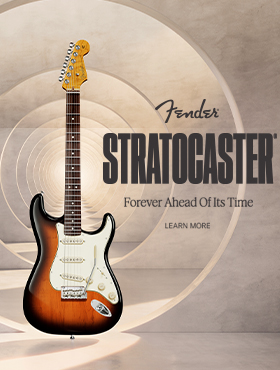
Radiohead’s producer Nigel Godrich is plugging his own album, a new musical project called Ultraista which he recorded with Beck, REM drummer Joey Waronker and vocalist Laura Bettinson. Much to his annoyance, he knows that in any discussion he has with the music media, they’re going to mention the ‘R’ word. ARIA award winning Australian producer, Magoo, to a much lesser degree is in a similar position and will forever be associated with another ‘R’ band, Regurgitator. When Magoo spoke to Godrich over the phone, he was sympathetic to Nigel’s plight and kept away from tales of Yorke, preferring to get inside the head of one of the world’s most successful producers.
Magoo: I am curious about how the project came together before you met Laura, when it was just you and Joey. Were you just hanging out between schedules when you were in the same town?
Nigel: Exactly. He and I and another friend named Guss. So many times we just got together and we would be recording or jamming. Most of it we did in London but we are working all over the place. Guss and Joey both have little studios and I have a big studio. It’s nothing out of the ordinary, we just made a concerted effort to get a bunch of backing tracks together. We spoke a about a certain aesthetic about electronics and a repetitive rhythm which is played. Obviously electronic music that is repeated is exactly the same. You get a human being in and they can repeat but it will sound different every time. Afrobeat was the reference point. So that’s how it started and then we had an intense 3 day session, like a right ol’ recording party and ended up with bits of music that we would then … essentially what I did was took all the music off and kept the rhythm and started again. That’s the basis of the record.
M: How much of this stuff did you have together before you thought you had to find yourself a singer?
N: Quite a lot actually because we’d done tiny snippets which might have been a minute long or three minutes or whatever. It would be a feeling, a little movement and we would leave it at that and move on to the next one. After a while we would go back and look at things and see how they could build and be structured.
M: Were you at any stage trying to do it without vocals?
N: Originally yeah, it could have been just instrumental. It was a bit of an experiment really just to see how substantial something could be like that.
M: Just to see how it evolves?
N: Yes, because it is always a terrifying prospect to say OK we are going to make some music and find a singer… you’d find a singer first and get them involved. I think it’s very hard to find a singer. With the peculiar relationships that we have… mine and Joeys is such a specific one, once in a lifetime, unique buddy becomes muse becomes .. you know!
M: You have worked with each other for years …
N: Yes, To get someone else in with that chemistry is terrifying. It’s something that is not taken lightly anyway. We only did it because we felt that we would be real pussies if we didn’t try. You know, let’s push this and I think we were very fortunate to meet Laura. She’s incredibly down to earth and rational. One of the most important things about relationships is about being able to communicate with that person.
M: I read about how you put up posters at an art college. You were trying to find someone who was not even necessarily a musician to sing. Did you actually audition anyone form that process?
N: We actually got replies with music that they had made. We were trying to find someone who was an interesting character, who could sing but maybe hadn’t thought about taking it seriously.
M: An amateur?
N: Exactly. The last thing we wanted to do was have a singer songwriter with their chops together who had their version of what they wanted to do already sorted out. What we did end up finding in Laura, was someone who did have their own thing going, but it was very compatible and didn’t work against what we trying to do.
M: How much did the songs change when she came into the picture?
N: What would happen, is that I would write with her. There are a couple of tunes I wrote myself.
M: With lyrics and melodies?
N: Yeah, lyrics, melodies and me singing and she’d re-do it. We’d improve them and finish them off with her singing then there are things that she wrote over the top of what I’d done and we’d finesse that. Then there’s like a ping-pong thing where you are just throwing stuff at each other and putting it together as you go. There are all sorts of ways of doing it and lyrically it is the same thing. We’d play word puzzles.
M: So did you have that aesthetic before Laura joined, that historic Ultarist poetry movement (The Ultraist movement was a Bohemian-style literary movement born in Spain in 1918)
N: That was already happening before that word came along. People have said you must have been sitting there with an Ultraista manifesto following the instructions. Well no, it was just a coincidence but it works very well. That word suggested what I was feeling, what I could see along with that music.
M: Do you ever have free time Nigel?
N: Oh I do. I have an awful lot of time to stare at the wall and think about what I am doing. I have a very unstructured life. It’s a blessing and a curse because it can actually drive me crazy but it allows me to drop anything and do something on a whim. I have this amazing studio. I can just run in if I have an idea. A lot of this record was collaborative in that we were all in the same room but quite a bit happened in isolation. I wrote a bit of stuff at home. Laura wrote stuff on her own.
M: Was there a lot of sending files over email?
N: Yes a lot of that. Exactly.
M: When you got to the stage of setting up your own studio, was this something that was ticking away at the back of your head?
N: No, this is not like a career move. I think what happened was that there was gap in the schedule. This stuff had been kicking around a little bit. It was like let’s get this finished. Am I a man or a mouse?
M: You don’t seem like the kind of guy that is going to have a holiday sitting on a beach drinking cocktails?
N: I really wish I did. I think I really give myself a hard time with time! I have read about so many incredible people, incredibly productive people who describe themselves as lazy… and I think that I am lazy. One of my best friends, Nicholas Godin from Air, who is full of wisdom … says lazy people are the smartest because they always try to get the most using the least effort. I think I am one of those. I’m not like idiots who just work for nothing. There has to be a good economy of your effort. It is very important to being creative. You can’t waste your energy on something that is not really going to contribute to the end result. That goes for anything. If you are a recording engineer and producer, then you know what I am talking about. If something sounds, finished or good, you don’t need to take it apart and put it back together again.
M: I am curious about what kind of hours you work. Will you bash your head against a wall trying to get something done, keep at it. Or are you more … let’s take a break, come back tomorrow and this idea will come to fruition.
N: I think I would answer that question by saying I would probably stop. Generally what would happen is that I would say stop, this isn’t working and at that moment, something will happen.
M: I always find that I have my best ideas on the toilet. You have that break and have that golden moment, pardon the pun
N: It’s like when people started using Pro Tools, they’d say I miss pushing rewind. When you used to rewind you had this moment to think about things. You don’t get that space any more. I think that I work better at night when everybody else is asleep. The world is quiet, there are no distractions. I am terrible in the mornings as a human being. I am just not a good morning guy. Nothing really good happens until after dinner. That’s fine when it is just me. When I am working with other people, it’s hard because people don’t all keep the same schedule. Generally the work that I do which is good and happens very quickly is between the hours of 11 and 4 in the morning.
M: I hear quite a bit of Brian Eno in his David Byrne type phase in your work. Is he a bit of an influence?
N: I guess so. I am a big fan of that era Talking Heads
M: The Remain in Light period?
N: Yeah, that was huge to me. It was an incredible piece of work but I’m not a fan of Heroes. There are things I am a fan of and things I am not. Obviously there is an idea behind Music For Airports, the ambient moments which I totally understand and love. I have an enormous amount of respect for the guy but I don’t try to emulate anything he has done and never would. Whereas I would try and emulate Trevor Horn. This is a good example of how things happen actualIy. I try to do Trevor Horn and it sounds like Brian Eno. I understand why you say that. He thinks outside the box. He is not hemmed in by a set of rules he thinks he has to follow. At times he has done things in his career that changed the way that everybody does things.
M: Have you met Brian Eno?
N: I have met him a few times. He is very gracious, a very nice man. The thing that I like about Trevor Horn is … even if it is too pop for me, like Frankie Goes To Hollywood or something, even within this mainstream pop thing, he is incredibly obtuse and bold. Such big, bold things happen that go against the grain and you can feel that intention. That’s the thing I really do try to emulate as an idea, rather than a sonic pallete. With Brian Eno … I like the sound of space, the ambience and echo and reverb. I like to see big spaces when I listen to things because I see things when I hear things.
M: Getting back to the Ultraista album … without getting too technical … is that just the way Joey plays, or is there a bit of manipulation going on or a bit of both? To me it sounds like there are a few layers of drums in the way that dance music has multiple loops or some sort of loop and a bit of programming underneath. It feels like you’ve gone for that aesthetic but done it live …
N: That’s exactly right. Basically there are electronics going on that he is playing to which is woven into his sound. Sometimes the drums are being processed through a piece of electronics that is making a rhythm that he is playing to. It’s like they’re rubbing against each other.
M: I just wanted to ask how you go being on the other side of the glass so to speak, promoting an album?
N: It’s fine. It feels a little bit like uncomfortable but I think that is good. It’s a nice change and it is important to make yourself vulnerable. It’s important not to be afraid of things… and it’s important to just do … stuff! I mean the nature of the business is changing. I think producers are more artists now anyway. I’m not going to just find a band and make a record with them anymore. It’s just not that much fun. I would rather work with people that are my friends, have my input, be upfront and be able to write music. It is stuff I have always done. I don’t know what I will do next. I enjoy the playing, that’s fun.


